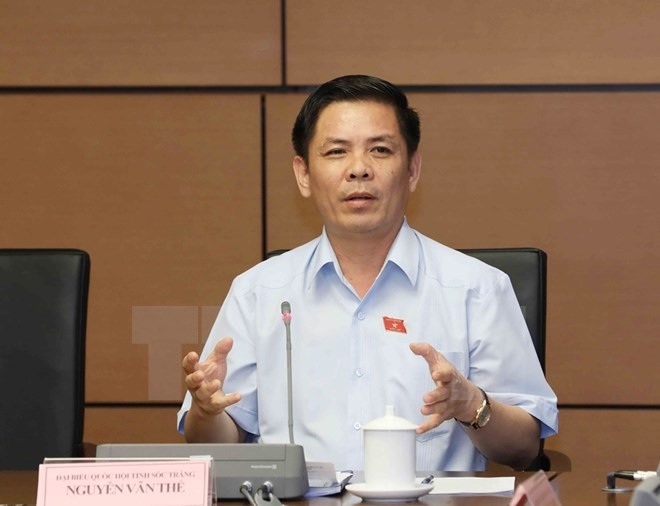.jfif) Opinion
Opinion

Nguyễn Văn Thể, Minister of Transport explains to www.chinhphu.vn that his ministry vows to be a pioneer in releasing ‘burden’ for enterprises.
 |
| Nguyễn Văn Thể |
Nguyễn Văn Thể, Minister of Transport explains to www.chinhphu.vn that his ministry vows to be a pioneer in releasing ‘burden’ for enterprises.
Will you please talk about the Ministry of Transport’s plan to simplify its business conditions as written in Decision 767/QĐ on April 17, 2018?
To respond to the government’s Resolution 01 on simplifying administrative procedures, the Ministry of Transport has increased its efforts to review all administrative procedures in the five modes of transport under its administration, including road, air, rail, sea and inland water way services.
Following a series of meetings of leaders from the given modes of transport and consultation sessions with concerned Government agencies and ministries, I signed Decision 767 to cut and simplify current administrative procedures.
Before we launched a comprehensive review, we had 570 business conditions and specialised inspection procedures. However, following the review, we have decided to slash 384 conditions, accounting for 67.76 percent of all previously required conditions.
However, I should say more conditions will be removed in the near future. This is the command from Government’s Resolution No.1. What we want is to provide favourable conditions for enterprises to do their business.
Which slashed conditions were most welcomed by enterprises in the MOT’s administrative reform process?
Among the four business sectors undergoing administrative streamlining the most welcome is the air service sector, where 74 per cent of business conditions have been erased. This is followed by the rail sector with 73 per cent, the road sector with 68 per cent and then inland water ways and maritime sector by 63 per cent each.
In addition, the MOT has also simplified quite a lot of administrative procedures in vehicle registration and the multi-mode transport business. In both fields, each sector has up to 61 per cent of conditions slashed.
In the meantime, the MOT has focused efforts to simplify import and export procedures and switch from pre-checks to post checks. The switching from pre-checks to post checks has saved a lot of time and money for enterprises and is considered the biggest breakthrough in the transport sector.
In my capacity as head of the transport sector, I vow to do my best to create favourable conditions for enterprises and society as a whole.
Will you please talk a bit more about the road map for reducing business conditions in the transport sector in the near future?
From now till late October, all department director generals in the MOT will have to make a list of what conditions should be slashed or simplified.
When the list is complete we will meet and review them and then classify them into three groups as follows;
Group 1, conditions contained in circulars developed by the MOT must be implemented immediately.
Group 2, all conditions and procedures relating to Government Decrees or issued by the Government will be presented to the Government at the latest in October 2018 for approval before implementation.
Group 3, any binding legal requirements affecting the whole nation, the MOT will submit them to the Government and the Government will then submit them to the National Assembly for approval.
In the early years of 2000, businesses were happy with the MOT’s decision to cut many administrative procedures. But more recently, cumbersome administrative procedures have staged a comeback. How do you respond to that complaint?
In all regular meetings of the MOT, I have told my subordinates that whenever a new circular is issued, no administrative procedures should be required and if I hear any complaints from enterprises that the circular requires new administrative procedures, the circular compiler and the director of that unit will be sanctioned immediately.
I’m confident that future administrative procedures in the field of transport will only be simplified, not complicated. —VNS




